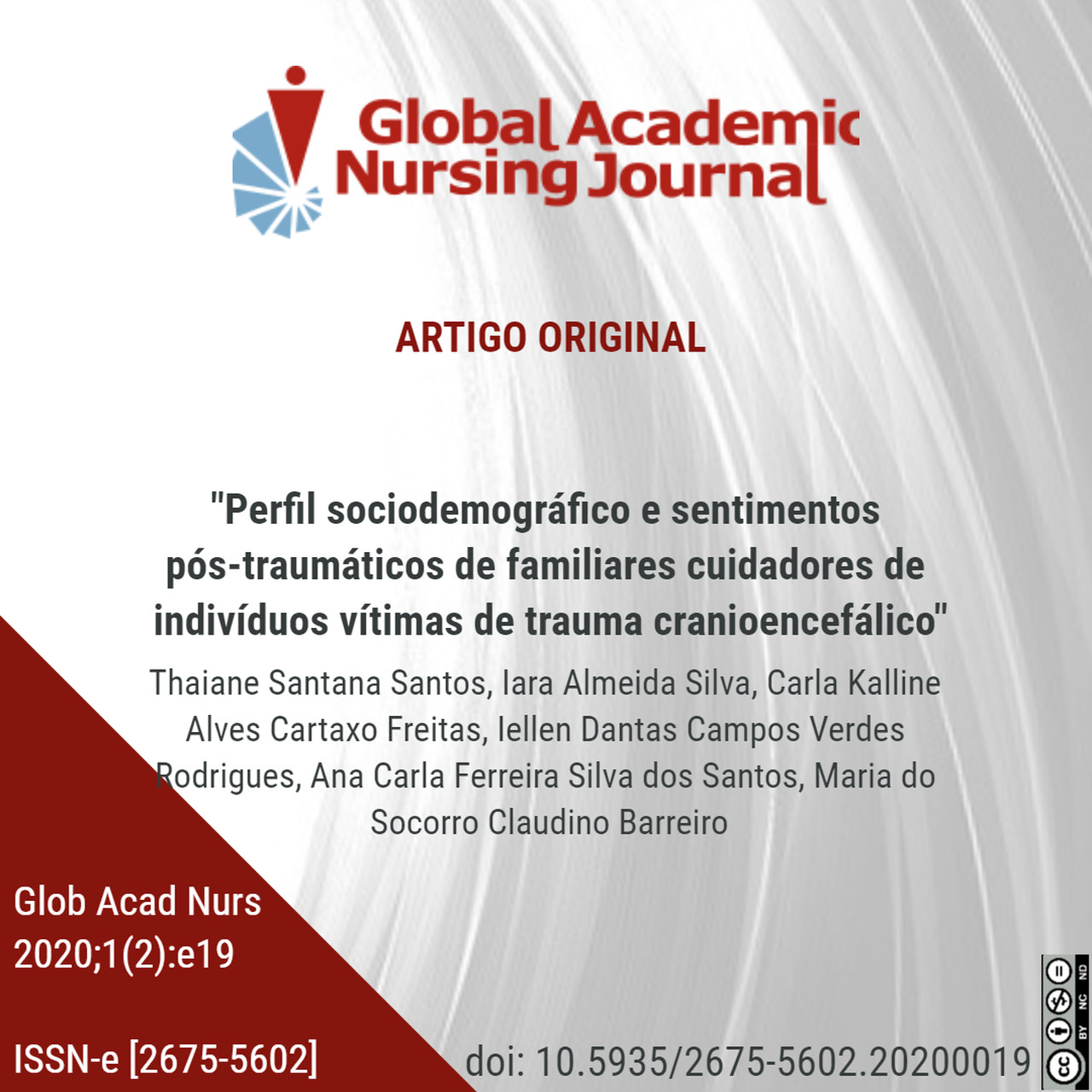Abstract
Cranioencephalic Trauma (CET), as a pathological change in brain function, has consequences for the individual, changes his social role and the context in which he is inserted. Thus, the events resulting from a CET include victim and family, requiring a comprehensive approach by health services. Therefore, the objective of this study was to characterize the sociodemographic profile of family caregivers of individuals victims of CET treated at a hospital in Sergipe. For this, a descriptive and analytical research was carried out with family caregivers of individuals due to CET. Data were collected through telephone contact with a collection instrument containing objective questions regarding the characterization of the family caregiver. Thus, after the construction of the caregivers' profiles and the identification of feelings related to post-trauma, it was possible to realize how important these findings are for health services, serving as a subsidy for proposing interventions and programs that suit the public- target. In the context of family caregivers, this tool becomes essential to guarantee comprehensive health care for these individuals.

